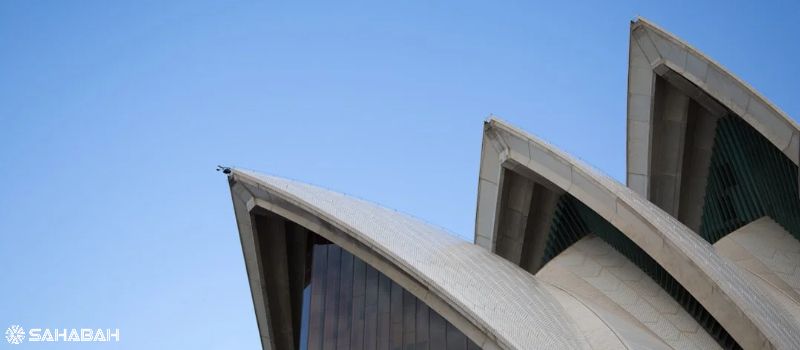Australia’s relationship with Israel has been a complex and often contentious issue, with the country’s stance evolving over time. As a close ally of the United States, Australia has historically maintained a pro-Israel position, but the dynamics of this relationship have shifted in recent years, particularly in the wake of the ongoing conflict in Gaza.
Understanding Australia’s Historical Relationship with Israel
Australia was one of the first countries to recognize the State of Israel in 1949, just a year after its establishment. This early recognition was influenced by a range of factors, including the country’s strong ties with the United Kingdom and the growing influence of the pro-Israel lobby within Australian politics.
Over the decades, Australia’s support for Israel has remained relatively steadfast, with successive governments, both Labor and Liberal, affirming the importance of the Australia-Israel relationship. This support has manifested in areas such as trade, defense cooperation, and diplomatic backing on the international stage.
Current State of Australia-Israel Relations
In recent years, however, Australia’s stance on Israel has come under increasing scrutiny, particularly in the wake of the ongoing conflict in Gaza. The Australian government, led by Foreign Minister Penny Wong, has been more vocal in its criticism of Israel’s actions, urging the country to “change course” in Gaza to maintain international support.
Wong has argued that Israel’s continued military operations and settlement expansion in the occupied territories are “hurting Israel more than helping” and that the country risks losing even more international support unless it adopts a more conciliatory approach. This shift in tone has been welcomed by some, but it has also drawn criticism from pro-Israel groups within Australia.
Domestic Perspectives on Australia’s Israel Policy
The debate over Australia’s Israel policy is reflected in the country’s domestic political landscape. While the Australian public generally maintains a positive view of Israel, there are also significant pockets of support for the Palestinian cause, particularly among left-leaning and progressive segments of the population.
The influence of pro-Israel and pro-Palestinian lobbying groups has also played a role in shaping the political discourse around this issue. These groups have sought to sway public opinion and exert pressure on policymakers, leading to an often polarized and contentious debate.
Geopolitical Implications of Australia’s Israel Stance
Australia’s position on Israel also has broader geopolitical implications, particularly within the context of the country’s relationships with other Middle Eastern nations. While Australia’s close ties with Israel have strengthened its standing in the region, they have also complicated its relationships with countries that are more sympathetic to the Palestinian cause.
This balancing act has become increasingly challenging as the conflict in the Middle East continues to evolve, with Australia seeking to maintain its influence and diplomatic leverage while navigating the complex web of regional alliances and rivalries.
Exploring Alternative Viewpoints and Criticisms
Critics of Australia’s pro-Israel stance have argued that the country should adopt a more balanced and impartial approach to the Israeli-Palestinian conflict, prioritizing human rights and international law over political and economic considerations. They have also called for Australia to take a more active role in promoting a peaceful resolution to the conflict, rather than simply aligning itself with one side.
Proponents of a more pro-Israel stance, on the other hand, have accused the Australian government of undermining its traditional support for the country and have warned that a shift in policy could damage Australia’s standing in the region and its broader strategic interests.
The Future of Australia-Israel Relations
As the political landscape in both Australia and Israel continues to evolve, the future of the Australia-Israel relationship remains uncertain. While the fundamental ties between the two countries are likely to endure, the nature and extent of Australia’s support for Israel may be subject to further shifts and adjustments.
Factors such as the outcome of future elections, the actions of the Israeli government, and the broader geopolitical dynamics in the Middle East will all play a role in shaping the trajectory of this relationship. Ultimately, the challenge for Australia will be to navigate these complexities while upholding its values and protecting its national interests.
Practical Implications for Australians
The Australia-Israel relationship has practical implications for everyday Australians, particularly in areas such as trade, tourism, and cultural exchanges. Australia’s close ties with Israel have facilitated a robust two-way goods and services trade, with Australian investment in Israel totaling over $1 billion and imports from Israel amounting to hundreds of millions of dollars annually.
Additionally, the strong people-to-people connections between the two countries have led to vibrant cultural and educational exchanges, with Australians traveling to Israel for business, leisure, and academic pursuits. Any significant shifts in Australia’s Israel policy could have tangible impacts on these areas, affecting the lives and livelihoods of Australians.
Conclusion: Navigating the Complexities of Australia’s Israel Stance
Australia’s relationship with Israel is a complex and multifaceted issue, with a long and often contentious history. As the country navigates the evolving dynamics of the Middle East, it will need to carefully balance its strategic interests, diplomatic considerations, and its commitment to human rights and international law.
Ultimately, the challenge for Australia will be to find a nuanced and balanced approach that allows it to maintain its close ties with Israel while also addressing the concerns of the international community and the Australian public. This will require ongoing dialogue, critical analysis, and a willingness to adapt to the changing geopolitical landscape.
FAQ: Does Australia support Israel?
Australia has been a strong supporter of Israel and has maintained a close relationship with the country over the years.
How does the Australian government view the conflict between Israel and Palestine?
The Australian government has shown solidarity with Israel but has also called for a peaceful resolution to the conflict and has expressed concerns about the humanitarian crisis in Gaza.
What is Australia’s stance on the attacks on Israel by Hamas?
Australia condemns the attacks on Israel by Hamas and supports Israel’s right to defend itself against such acts of terrorism.
Has the Australian government called for any specific actions from Israel?
The Australian government has urged Israel to change its course in Gaza to keep international support and avoid further escalation of the conflict.
What role has the Australian Foreign Minister played in the issues between Israel and Palestine?
The Australian Foreign Minister, Penny Wong, has been actively involved in foreign affairs related to the conflict and has called for a peaceful resolution to the tensions.
Is there any indication that Australia might change its stance on the Israel-Palestine conflict?
Unless Israel changes its course in Gaza and addresses the humanitarian crisis, Australia may reconsider its support towards Israel and show more support for Palestine.
How has the Australian public reacted to the conflict between Israel and Palestine?
There have been mixed reactions among the Australian public, with some showing support for Israel while others advocate for a more balanced approach and support for Palestine.






